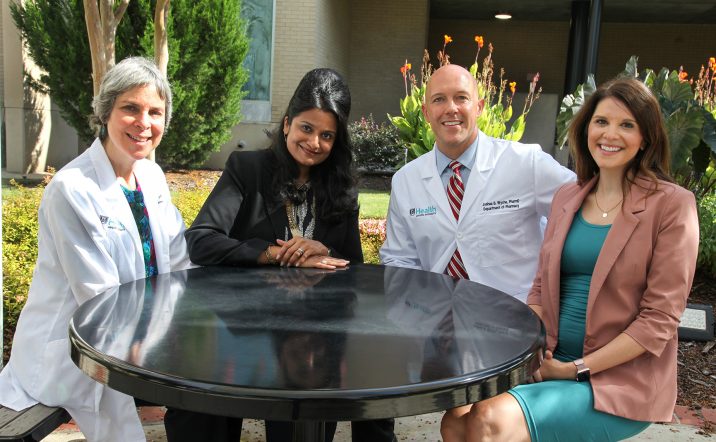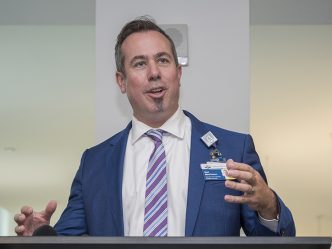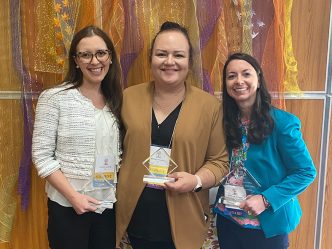Back in fall of 2016, researchers at Augusta University were awarded a grant of $299,996 from the Agency for Healthcare Research and Quality (AHRQ) for a collaborative research project: “Using Social Knowledge Networking (SKN) Technology to Enable Meaningful Use of EHR Medication Reconciliation (MedRec) Technology.”
The goal was to enable knowledge exchange and learning related to best practices in EHR MedRec among different provider groups such as physicians, nurses and pharmacists, based in inpatient and outpatient settings of care.
It was “eye-opening” to discover through this project that an SKN system had potential to enable more effective use of the EHR MedRec system through interprofessional learning of best practices, according to Dr. Pavani Rangachari, a professor in the Public Health Program at the College of Allied Sciences.
This suggested that in the longer term, an SKN system would have potential to reduce medication errors and promote patient safety during transitions of care, Rangachari said, by enabling more meaningful use of the EHR MedRec system by health care providers. Rangachari worked with a team of AU Health medical staff and the IT division to create the SKN system.
“The EHR MedRec System needs to be used effectively by providers to ensure that chronic disease patients on multiple medications are provided with accurate active medication lists during transitions of care,” Rangachari said. “Oftentimes, many communications related to the patient’s medications occur outside of the electronic context, and it usually happens between the provider and the patient just to take care of that one encounter, which really defeats the purpose because then, information is missed in the system not only for the patient’s family and caregivers, but more importantly, for the next providers of care.”
Here were the key takeaways in regard to strategies for successful implementation of best practices in health care organizations, according to a recently-published article from the two-year pilot study:
- At the start of any effort to implement best practices, create a knowledge sharing and learning mechanism (e.g., SKN) among a critical mass of providers, expected to implement practice changes. The mechanism should facilitate tacit knowledge exchange on issues experienced with current practices, as well as possible resolutions to those issues.
- Conduct proactive, periodic communications (from senior leadership) on benefits of adhering to best practices and consequences of not adhering to them.
- Create shared understanding of the value of best practices (i.e., the link between practices and outcomes) or the answer to the question of “why” practices need to change, to gain provider engagement in changing practices, before embarking on IT-training of providers to address sociotechnical challenges.
- Develop capacity to collect, analyze, and disseminate data on best-practice measures among providers to promote a scientific (research-based) approach to learning and improvement.
- Enable champions for change to emerge from among providers, to voice the need for culture change for enabling successful best-practice implementation; and reinforce these messages with proactive, periodic communication from senior leadership.
- Create a “learning health system” by synthesizing lessons learned to facilitate “collective learning (aha) moments” across provider subgroups and care settings; and encourage providers to spread the learning within the broader institution. Management research has suggested framing practice issues as a “learning challenge” rather than a “performance challenge,” and addressing them in the form of non-threatening pilot research projects, to engage providers in improvement. This project fulfilled both criteria to demonstrate meaningful results. This suggests that other health systems could also benefit from developing similar capabilities to become “learning health systems.”
Results from this pilot study have also been accepted for PubMed-indexed publication and oral presentation at the 2019 American Medical Informatics Association (AMIA) Annual Symposium Proceedings, to be held in Washington, D.C., in November 2019; and another publication from this project has been incorporated into the National Patient Safety Network (PS Net) maintained by AHRQ.
 Augusta University
Augusta University





